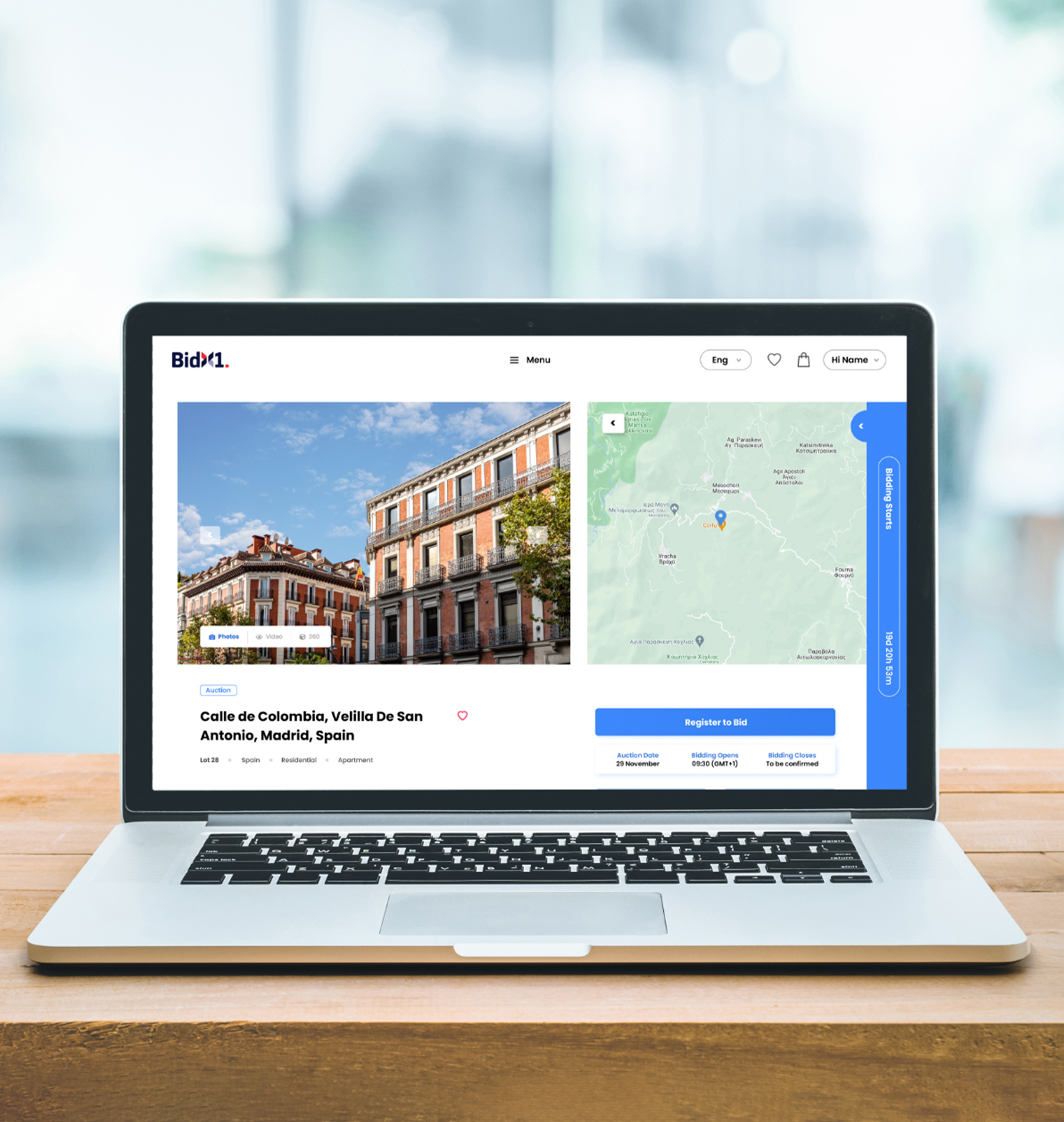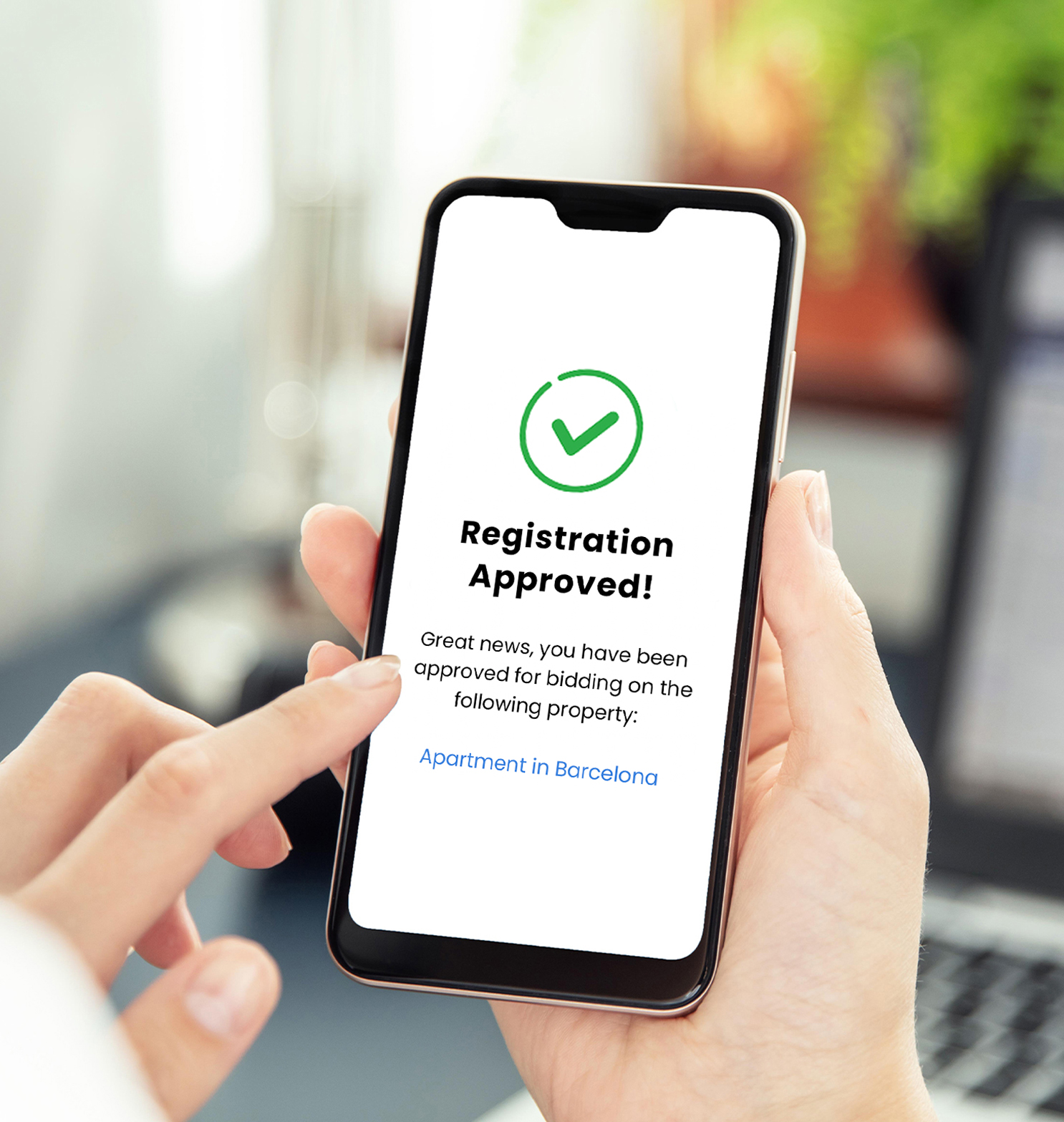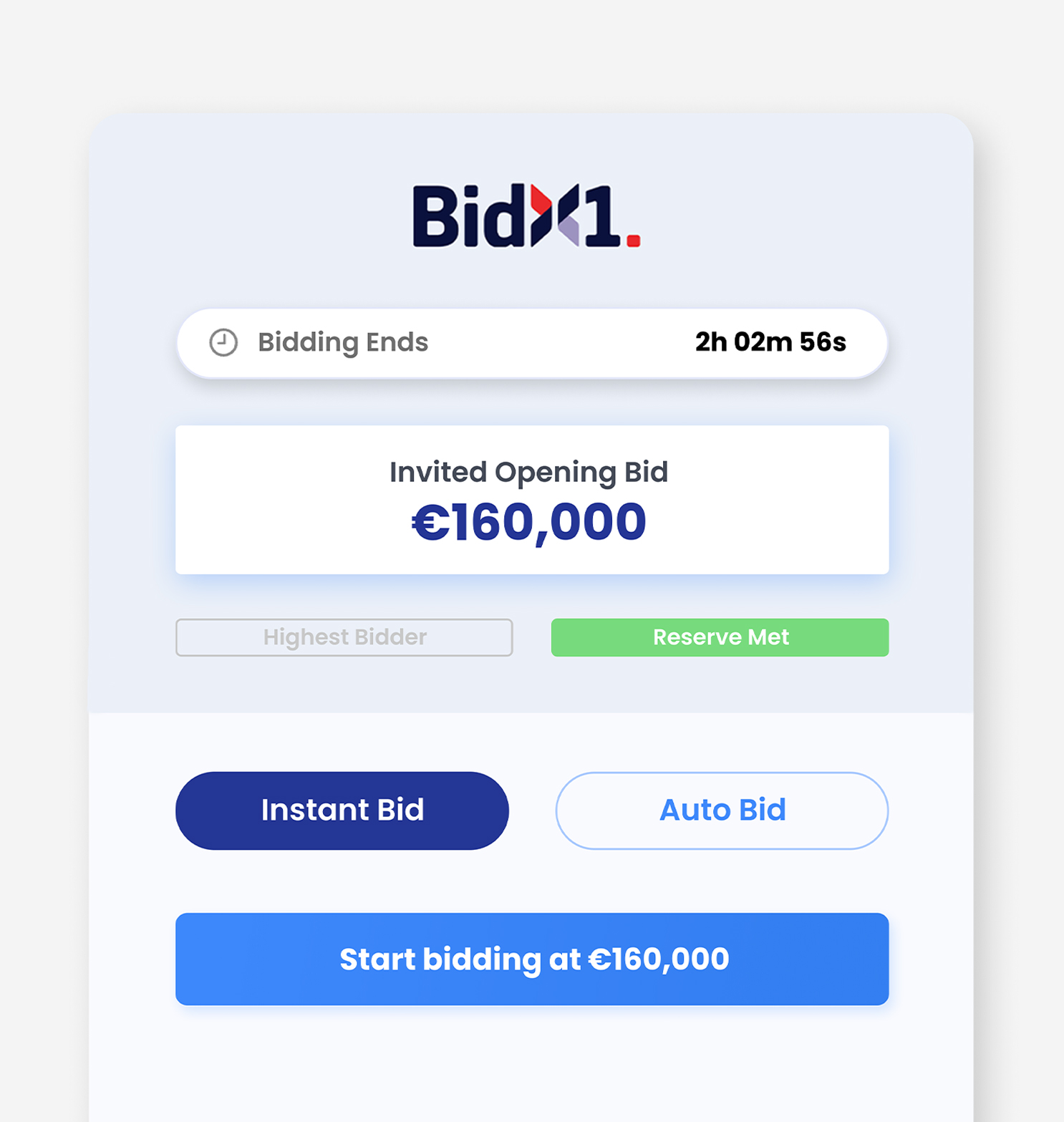
What is an auction?
An auction is an easy and efficient way to buy property – and a great way to find value opportunities that cannot be accessed through other channels.
Firstly, we set an auction date and list all the properties that will go for sale on that date.
Buyers browse the catalogue and book appointments to view properties before the auction.

We set an Opening Bid for each property so that our buyers know where bidding will start on the day of the auction – the Opening Bid is clearly displayed on every property listing.
We also provide all the Legal Documentation upfront so that buyers have all the information they need. Simply click ‘View Legal Documents’ on the property listing page.

Anyone who wishes to take part in the auction must register in advance, including a deposit payment.
This deposit will be fully refunded if you are not the successful bidder. You can register to bid on a property from the property listing page – simply click the blue ‘Register to Bid’ button to start the process.
To get more details about the process, read our Registration Guide.

Remember, many sellers will consider good offers before the auction – you can make an offer directly from the property listing at any time using the ‘Buy Now’ button.
These offers are not binding and will be considered by the vendor on an ongoing basis, so we advise buyers to submit their offer as early as possible.

On the day of the auction, bidding will open at 10am and ends at the closing time listed.
Bidding takes place on the property listing page and can be viewed live – but only registered parties can place bids, to ensure a fair process.
Although the bids are shown live, the bidders are anonymous – only their bidding number is shown. You can see how it works beforehand using our Bidding Demo.

